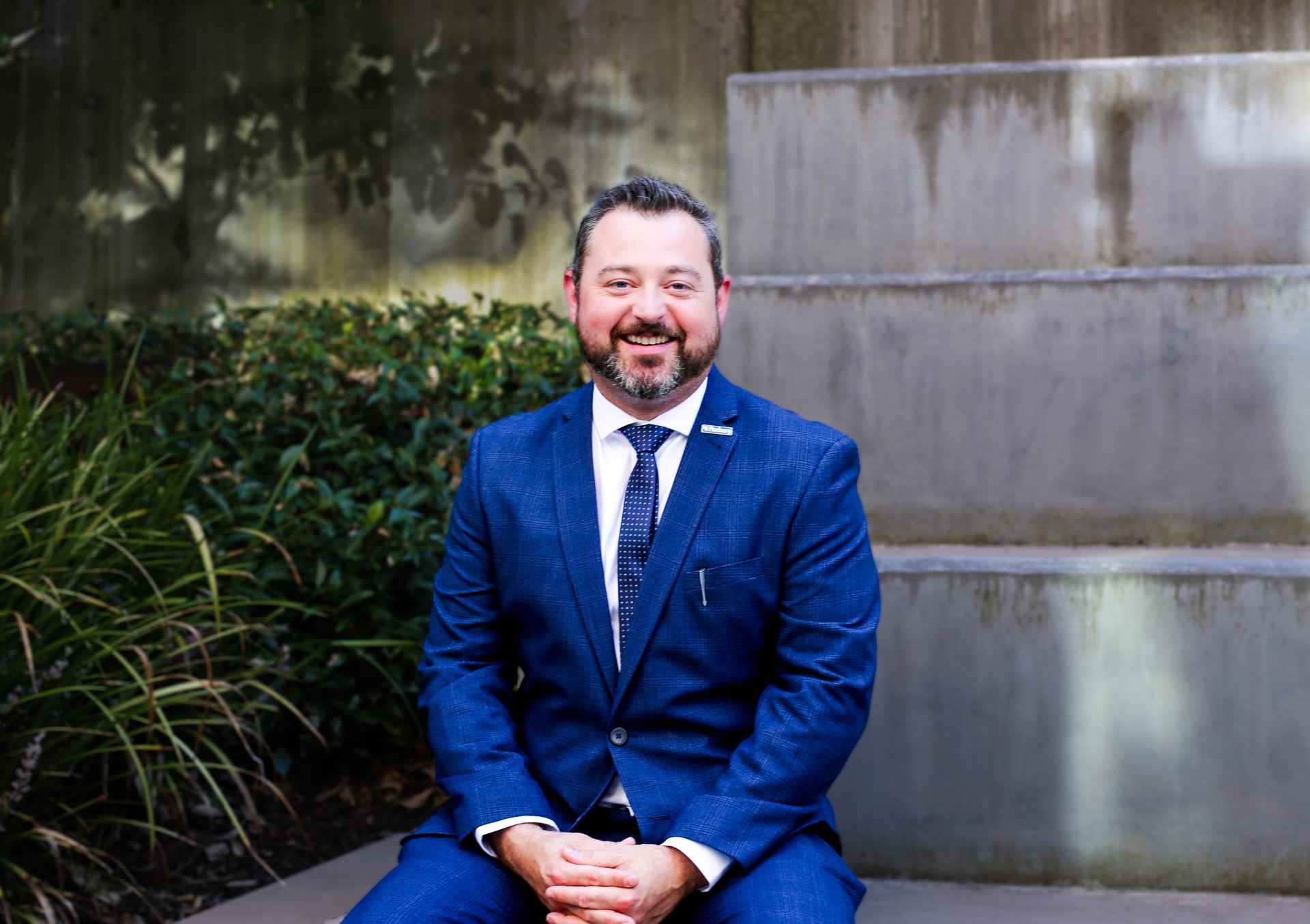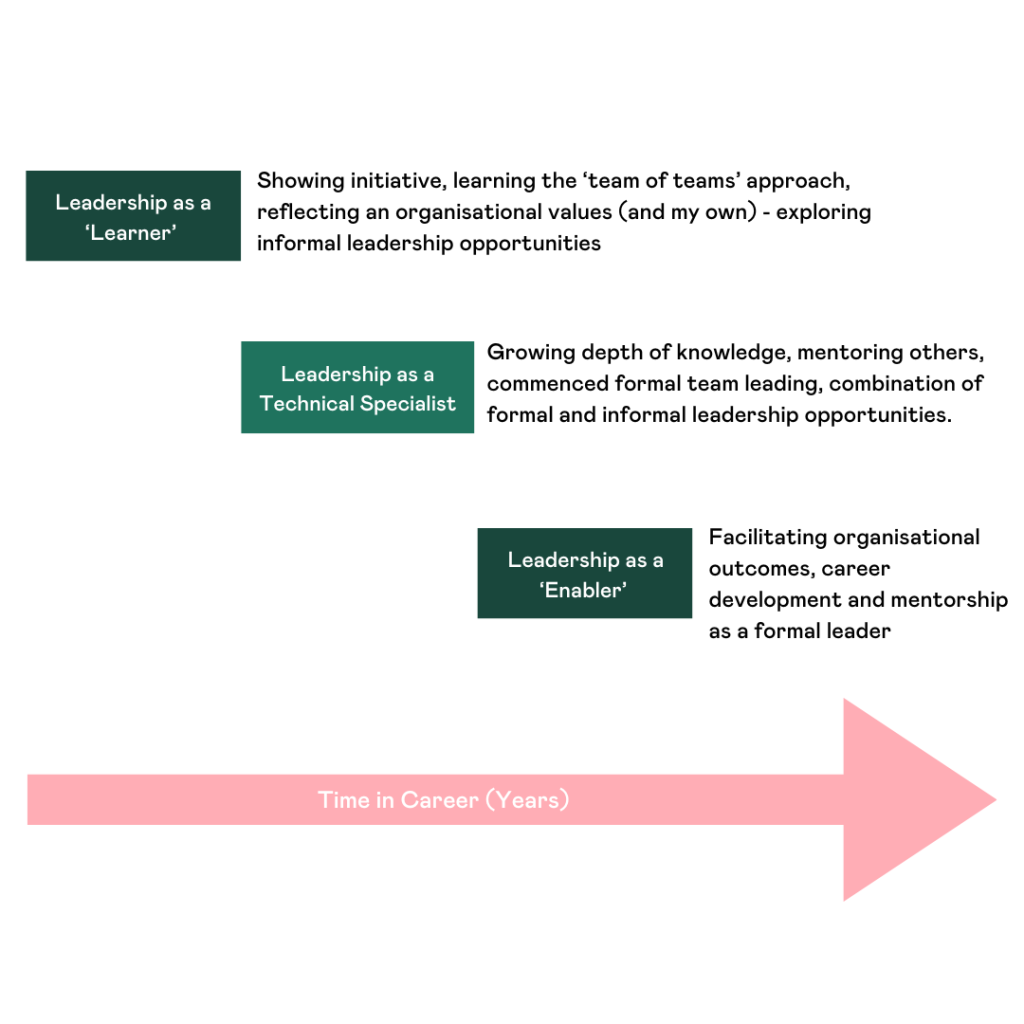Four key lessons on self-leadership

I was incredibly proud to return to Flinders University as an alumnus to share my career experience, since graduating in 2008, with an emphasis on ‘self-leadership’. A lot has changed at the Bedford campus in 15 years, with new buildings and a fabulous refurbishment of the main plaza; however, some things have remained the same – like the buzz of walking around the campus and busy students moving between classes.
My early career experience was forged in several casual jobs whilst at high school and university, often customer facing and in fast-paced hospitality environments. This strong foundation of customer-focussed ethos has held me in good stead, as I have been incredibly fortunate across my career so far, having a number of diverse roles including customer service, policy analysis, project management and now in my current capacity as a commercial practitioner.
What is ‘self-leadership’?
From my perspective, self-leadership is the discipline of knowing who you are (your values, or the things that you value), where you have come from (leveraging off frames of reference and experiences – both good and bad) and guiding yourself to a desired future state (goal setting and growth mindset). For me, self-leadership is like a muscle that needs constant training (and rest) to help me grow as a person, and make a valued contribution to my family, my community and the organisations in which I work.
At its core, my self-leadership approach has been shaped by my core values and the things I value doing. These are:
- Honesty – being honest in everything that I do (doing the ‘right’ thing and being a ‘good human’ is incredibly important to me)
- Curiosity – always wanting to learn and find out ‘why’ or ‘how’ (I was a bookworm as a child, then caught the travel bug!)
- Hard work – shaped by my parents and upbringing (my parents worked in retail/manufacturing – many long hours, and in my early teen years, was in a single parent home)
- Creativity – enjoying the creative process and solving problems
- Achievement – not only achieving goals/outcomes, but the feeling of being part of something bigger than myself (shaped by a lot of team sport in my younger years, and now heavily influenced by working in the Defence environment)
If you haven’t already done so, it can be a liberating activity to write down your core values (and the things that you value) and identify key points of your career journey where those have stood out or influenced your perspective over time.
Self-leadership approach
When reflecting on my core values and the things that I value for the presentation, I realised that my career journey hasn’t been linear and my self-leadership journey has evolved over time. My values (and the things I value) have had an influence on the choices I’ve made.
My self-leadership approach/style has grown and evolved through three key lenses, which I view as iterative and interact with each other constantly:
- Leadership as a Learner
- Leadership as a Technical Specialist
- Leadership as an Enabler

Four key lessons about self-leadership I’ve learned throughout my career so far
1. Self-awareness is key
a. Knowing your core values and discovering your ‘why’ (see Simon Sinek): This can be powerful in knowing who you are as a person, what makes you excited.
b. Ensuring values alignment in what you do: I have found that in my career, where my values (and the things I value) have matched that of the organisation I’m working with, then I’m able to flourish more and make a valued contribution to the organisation.
c. Self-care: Have the self-awareness to know when you need to rest. As a mad sports lover, I tend to break things down to ‘seasons’ – ensuring that I have a pre-season (preparation), season (work hard and grow), and postseason (rest). Your season could be any period (e.g. within a week, a month or across a project of 3 months). Ensuring adequate breaks means that you’re best prepared to rise for the next season!
2. Building a growth mindset
a. Build your frames of reference: When you complete a tough task or go through a challenging time, write this down or use this as a ‘frame of reference’, so when you’re presented with a challenge in the future you can reflect, know how far you’ve come and use this to say ‘I’ve been through x, y, z, — I can tackle this current challenge!’
b. Embracing failure: As a self-confessed perfectionist, this one can be incredibly tough for me. I continue to try and see the benefits of failure. Watching my two school-aged daughters quickly embrace failure and move onto improving is a great reminder that adults also need to better acknowledge it, learn and improve!
c. Establishing feedback loops (both informal and formal): All feedback is good, because it gives us information and can help inform our future actions. The core challenge is to identify those feedback loops and be willing to take on constructive feedback where it presents.
d. Finding inspiration in others’ success: I have found that when leading as a ‘facilitator’, my most memorable career highlights have been where I’ve been an enabler for others to succeed.
3. Build a systems perspective
a. Mapping out your ‘place’ in the system: Building a system-of-systems perspective is important for self-leadership in a complex work environment. Having the ability to map out who is in your various systems and their relevant viewpoint/influence on the system (team and organisational view) can assist with identifying stakeholders who can assist you in becoming unstuck from complex challenges (or offer a different perspective).
b. Viewing organisational challenges from multiple perspectives: A good metaphor is looking at the ‘dance floor’ (what is happening in the operations), and seeking a different perspective, or viewpoint looking at the balcony (what is happening from the bigger picture perspective – identifying patterns, dynamics and other factors influencing the ‘system’).
4. Embrace collaboration and divergence
a. Build your relationships and create networks: Many workplaces today face complex problems that often require deep collaboration coupled with strong personal relationships. For me, my self-leadership journey has been enhanced by many connections and networks I’ve built over time which has helped me navigate challenging projects.
b. Recognise the beauty in respectful divergence and diverse thought: Divergent thinking can sometimes uncover novel solutions to complex problems. A good way to practice this is to try and argue for something you don’t necessarily agree with (or seek a colleague to take an opposing point of view to test your assumptions in a project). This can be a powerful way to find blind spots in your thinking (and challenge groupthink!).
c. Seek coaching and mentoring where appropriate during your career journey: I have been incredibly fortunate to have had several brilliant mentors and coaches through my career who have supported, challenged, and guided me through my various roles!
Leadership can be hard, and like a muscle it needs constant exercise, rest and challenge. Arguably I have many years to go in my career, but I got a real buzz in sharing my journey with the Horizon program and hopefully positively influencing the students’ own self-leadership journeys!


